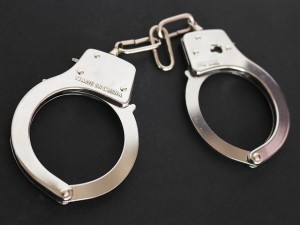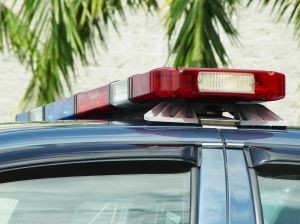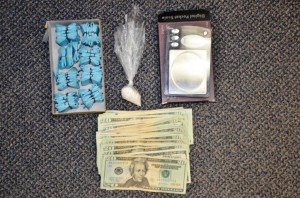 This week at the Greenbelt Federal Courthouse a 32-year-old man from Prince George’s County pleaded guilty to manufacturing and passing counterfeit currency. Sentencing is currently set for early June, and the defendant faces up to 5 years in prison for conspiracy to pass counterfeit currency and up to 20 years in prison for manufacturing counterfeit currency. As part of the plea agreement the PG County man from Capital Heights admitted to conspiring with two other individuals to print and use fake $100 and $20 bills. The printing took place at the defendant’s home, and then he would either sell the fake money at a discount or buy merchandise with it at local retailers. At some point law enforcement officers caught wind of the conspiracy and applied for a search warrant, which was executed in March of 2018. Agents recovered cell phones, three counterfeit $100 bills, linen copy paper, a printer, a .38 caliber revolver and shell casing, and a scale and baggies. The U.S. Secret Service took over the investigation and determined that the ink contained in the seized printer’s ink cartridge was indistinguishable from numerous counterfeit bills that were later recovered.
This week at the Greenbelt Federal Courthouse a 32-year-old man from Prince George’s County pleaded guilty to manufacturing and passing counterfeit currency. Sentencing is currently set for early June, and the defendant faces up to 5 years in prison for conspiracy to pass counterfeit currency and up to 20 years in prison for manufacturing counterfeit currency. As part of the plea agreement the PG County man from Capital Heights admitted to conspiring with two other individuals to print and use fake $100 and $20 bills. The printing took place at the defendant’s home, and then he would either sell the fake money at a discount or buy merchandise with it at local retailers. At some point law enforcement officers caught wind of the conspiracy and applied for a search warrant, which was executed in March of 2018. Agents recovered cell phones, three counterfeit $100 bills, linen copy paper, a printer, a .38 caliber revolver and shell casing, and a scale and baggies. The U.S. Secret Service took over the investigation and determined that the ink contained in the seized printer’s ink cartridge was indistinguishable from numerous counterfeit bills that were later recovered.
The defendant and his co-conspirators were not arrested by federal agents after the search warrant was executed, and unbeknownst to them the investigation continued. Federal law enforcement agencies are known for their patience in gathering as much evidence as possible before charges are formally filed, and this case is a perfect example. In the summer and fall of 2019 federal law enforcement continued to monitor the suspects and documented numerous transactions where counterfeit currency was used. In July of 2019 law enforcement conducted a traffic stop on the defendant’s vehicle and found 18 counterfeit $100 bills after a brief chase where the defendant attempted to run away. A few months later in October of 2019 the defendant’s vehicle was again stopped, and again he attempted to flee. During his brief flight the defendant discarded counterfeit currency in a trashcan, which was recovered by law enforcement. Police also recovered uncut sheets of counterfeit $20 bills. All told the defendant admitted to passing between $95,000 and $150,000 in counterfeit bills. The defendant agreed to pay at least $95,000 in restitution joint and severally with the other co-conspirators. It is reasonable to question whether the victims would have been defrauded out of this much money if the suspects had been prosecuted in 2018, rather than more than a year later.
It does not seem like the defendant has a lengthy criminal history, which should help his cause at sentencing. On the other hand, the government will certainly emphasize the fact that the defendant continued to engage in criminal activity despite the execution of multiple searches and seizures upon his home, car and person. The defendant also ran from police twice, and showed no signs of abandoning the criminal conspiracy on his own. The defendant was even charged with felony theft and possessing forged currency in Maryland state court in the District Court for Montgomery County in Rockville, but these charges were dismissed likely in anticipation of a federal indictment. The defendant had ample opportunity to see that law enforcement was on to him.
 Criminal Defense Lawyer Blog
Criminal Defense Lawyer Blog










